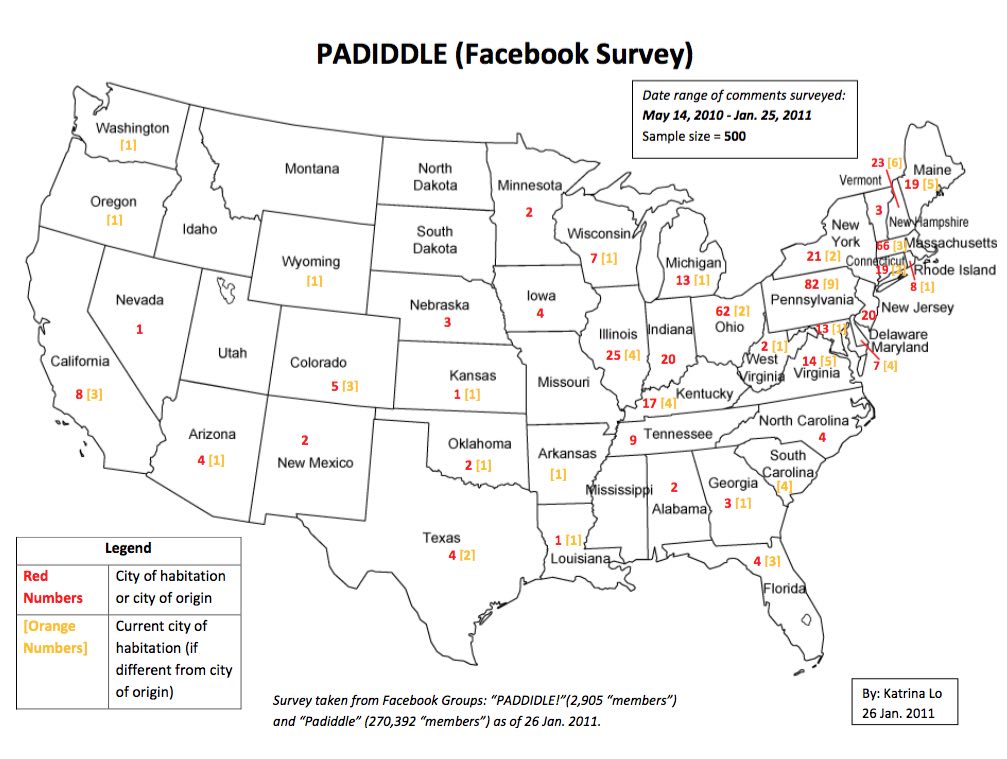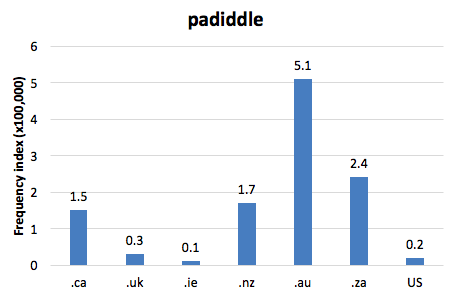DCHP-2
padiddle DCHP-2 (October 2016)
n. & exclamation — dated, slang, Automotive, Games
a road-trip game; the word a player calls out on spotting something designated by the game rules, which is usually a vehicle with only one working headlight.
Type: 2. Preservation — As Chart 1 shows, padiddle is Canadian only in the North American context, with higher frequencies in Australia and New Zealand. DARE's earliest quotation for the term (s.v. "padiddle") is from Kansas from 1959. As Dollinger & von Schneidemesser (2011: 136-8) show, the term's regional dissemination in the US is matched with today's Facebook data from nostalgia groups discussing the padiddle car game. In the US, one "confirms an eastern/Northeastern prevalence of padiddle, but, crucially, suggests a New England and inland Northern base of the car game as well" (Dollinger & von Schneidemesser 2011: 137).
The term seems to be a preservation in Canada, as its use appears to have declined in the US. But even in Canada, the days of the car game seem numbered (see, e.g., the 2005 quotation). Nonetheless, the term counts as a preservation from US English for some two or three decades after its prime time in the US.- The game is easily played. When a passenger sees a car with a burnt-out headlight, s/he yells "padiddle" and then gets a wish or a reward. The oldest 1959 quotation speaks of "kissing the girl", the 2003 quotation of punching someone in the car, which appear to be two standard "wishes"; there is also "strip padiddle" (see the 2016 quotation). But there are elaborate counting schemes as well (see, e.g. the 1999-2010 quotation), and versions that have nothing to do with "one-eyed bandits", i.e. cars with just one functioning headlight (see the 2007 quotation).
- Terms for this game vary within Canada. "Scadoodle" and "spadoodle" are variants in Atlantic Canada (see the first 2010 quotation), where "Ka-diddle" is also found (see the second 2010 quotation).
References:
- DARE
- Dollinger & von Scheidemesser (2011) Digital copy Accessed 11 Aug. 2016
Images:

Image 1: Distribution of padiddle car game in the US as measured by origin & current location of Facebook users in padiddle groups (methodology: S. Dollinger, drawing: K. Lo. Source & methodology: Dollinger & Schneidemesser 2011: 135-38)
Chart 1: Internet Domain Search, 4 Aug. 2016